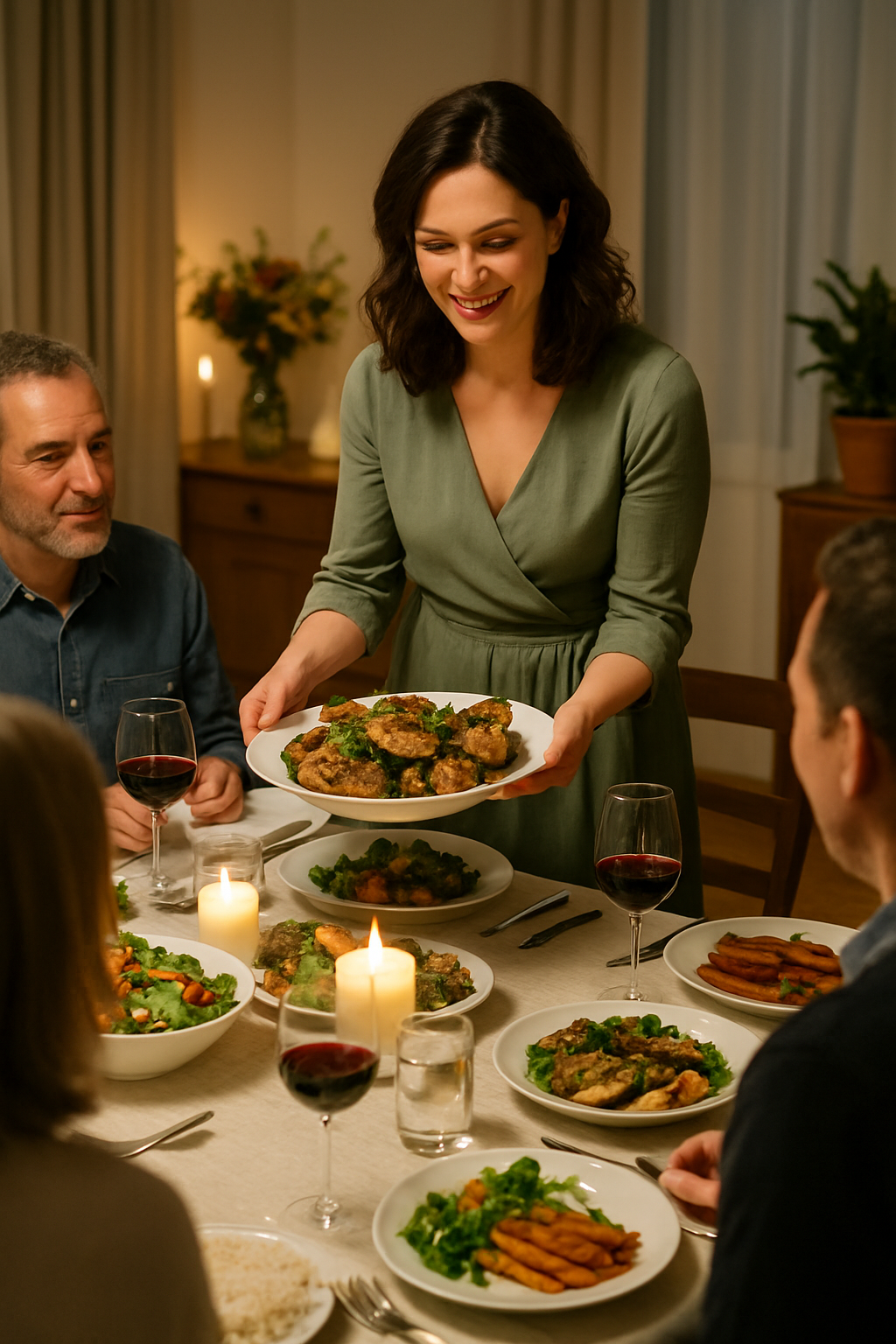Hosting a dinner party at home can be a rewarding experience. It’s an opportunity to bring people together, enjoy good food, and create lasting memories. However, many hosts find themselves stressed and exhausted by the time guests arrive. The key to a successful and stress-free dinner party lies in careful planning, smart preparation, and a relaxed attitude.
Start With a Clear Plan
Before sending out invitations, decide on the size and style of your gathering. Ask yourself:
- How many guests can my space comfortably accommodate?
- Do I want a formal sit-down dinner or a casual buffet?
- Will I cook everything myself or order part of the meal?
Having a clear vision early on will help you stay organized and avoid last-minute chaos.
Choose a Theme or Menu Early
A theme can simplify your decisions on décor, menu, and drinks. For example:
- Italian Night – pasta, antipasto platters, tiramisu.
- Summer Garden Party – grilled meats, fresh salads, fruit-based desserts.
- Comfort Food Feast – roasted chicken, mashed potatoes, seasonal pies.
Once you’ve chosen the theme, plan the menu around dishes you’re confident preparing. Stick to recipes you’ve made before to avoid surprises.
Send Invitations in Advance
Give your guests enough notice so they can mark their calendars. You can send paper invites, create an event on social media, or simply email them. Include:
- Date and time.
- Address and parking info.
- Dress code (if any).
- Any dietary restrictions or preferences you should know about.
Prepare Your Space
A tidy, welcoming environment sets the tone for the evening. Focus on key areas:
- Living Room – clear clutter, fluff cushions, arrange seating for conversation.
- Dining Area – set the table in advance with clean linens, plates, and utensils.
- Bathroom – stock with soap, towels, and extra toilet paper.
Shop and Prep Ahead
Write a detailed shopping list based on your menu. Buy non-perishable items a few days before and fresh ingredients the day before. Where possible:
- Chop vegetables ahead of time.
- Marinate meats the night before.
- Prepare desserts a day in advance.
This will free you up to focus on cooking and hosting on the day of the event.
Keep the Menu Manageable
While it’s tempting to serve multiple courses, more dishes mean more work. A balanced menu might include:
- One appetizer or starter.
- One main dish (with a vegetarian alternative if needed).
- Two simple sides.
- One dessert.
Aim for dishes that can be kept warm without losing quality or that can be served at room temperature.
Set the Table in Advance
Set the table at least a few hours before guests arrive. Consider adding:
- A simple centerpiece (fresh flowers, candles, or seasonal décor).
- Proper glassware for water, wine, or cocktails.
- Napkins folded neatly or placed in holders.
Create a Drink Station
Avoid running back and forth by setting up a self-serve drink area. Include:
- Water and non-alcoholic beverages.
- Wine, beer, or pre-mixed cocktails.
- Ice, glasses, and bottle openers.
Play Background Music
Music sets the mood without dominating the conversation. Choose a playlist that matches your theme—jazz for an elegant evening, acoustic guitar for a relaxed vibe, or upbeat pop for a lively crowd. Keep the volume low enough for easy conversation.
Welcome Guests Warmly
When guests arrive, greet them at the door, take coats or bags, and offer them a drink. This makes them feel comfortable right away.
Manage the Flow of the Evening
Try to serve food on schedule, but don’t panic if there are delays—guests will enjoy chatting and snacking in the meantime. Between courses, take time to sit and connect with your guests instead of rushing back to the kitchen.
Keep Cleanup Simple
Make cleanup easier by:
- Clearing plates between courses.
- Loading the dishwasher as you go.
- Using serving platters and utensils that can go straight into the dishwasher.
You can leave some non-essential cleaning until after guests leave—enjoy the party while it lasts.
Have a Backup Plan
Sometimes things go wrong—a dish burns, the weather changes, or a guest cancels last-minute. Keep extra snacks or a simple dessert on hand, and remember that most guests are there for the company, not a perfect meal.
End on a Warm Note
Offer coffee or tea with dessert, and thank guests for coming. If you’ve prepared small favors—like jars of homemade jam or cookies—give them out as parting gifts.
Final Thoughts on Hosting Stress-Free
A dinner party is about connection, not perfection. By planning ahead, keeping things simple, and focusing on making guests feel welcome, you can host with confidence and enjoy the event yourself. The best dinner parties leave everyone—host included—feeling happy, relaxed, and looking forward to the next gathering.

